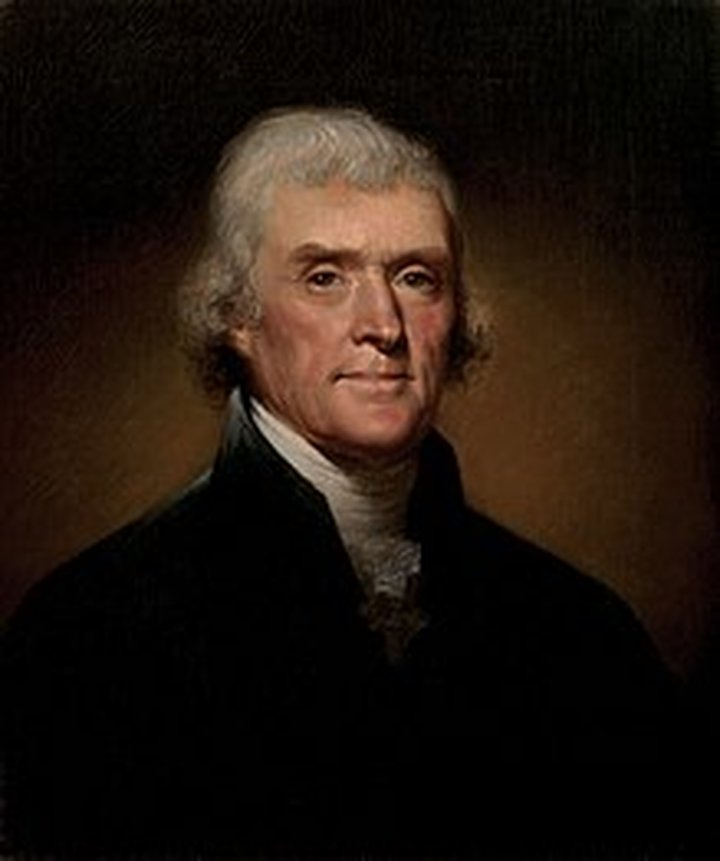No
artist is pleased. [There is] no satisfaction whatever at any time.
There is only a queer divine dissatisfaction, a blessed unrest…
(Martha Graham)
###
As an outsider — coming from the very country that the Declaration of Independence declared against — I’ve long been puzzled by the second sentence of the Declaration. Not the bit about all being created equal (all white male property-holders, that is), but the three examples it gives of “unalienable Rights”: Life, Liberty and the pursuit of Happiness.
Life and liberty (for white etc. etc.) seem obvious enough, but what’s with the “pursuit of Happiness.” Why not simply “Happiness”? Did the drafters of the Declaration — mainly Thomas Jefferson, as amended first by a committee, then the full Congress — appreciate that happiness per se was a fool’s errand, Sisyphus forever pushing the rock up the hill, an unattainable goal (unlike life and liberty). Recognizing that the best we can do is to put happiness in our sights as something to aim for, not something to actually achieve? Meaning we’re forever dissatisfied with the status quo, doomed to strive for a mythical state of bliss? The “pursuit of” phrasing certainly makes it seem that way.
Perhaps that isn’t quite what they had in mind, the declarers, because for them “happiness” didn’t quite mean what it does now. In the 18th century, the word was more synonymous with “prosperity” than today’s “joy.” Which makes sense, given the likely origin of the “Life, Liberty and Pursuit of Happiness” phrase. Nearly 100 years earlier the English philosopher and physician John Locke declared (in his Second Treatise of Government) that we were entitled to Life, Liberty and Estate. Estate being your home and garden and all the stuff that goes along with such property — cars, coffeemakers, smartphones would, I’m sure, have qualified, had they been around in 1689. It was Jefferson who made the switcheroo to “happiness.”

John Locke: Life, Liberty and Estate.

Thomas Jefferson: Life, Liberty and the pursuit of Happiness
Happiness has been taking a hit ever since, up to the present, where we’re all being exhorted to do more than just pursue it. We’re now supposed to live in a constant cloud of bluebird-happiness, at least according to bookshop shelves heaving with the likes of Deepak Chopra, Tony Robbins, Gretchen Rubin. When I’m told to “Cheer up, it could be worse,” I feel embarrassed: not just that I’m not doing my duty here on Earth by showing my gratitude, moment by moment, for just being here (by smiling, presumably), but maybe I’m letting the whole team down by not displaying an outward display of bliss.
As antidote, I’ve been reading Against Happiness: In Praise of Melancholy by Eric G. Wilson, an English professor at Wake Forest University in North Carolina. As you can guess by the title, Wilson disses both happiness and the pursuit thereof, the “overemphasis of happiness at the expense of sadness…The American dream might be a nightmare. What passes for bliss could well be a dystopia of flaccid grins.”
His thesis is that it’s melancholia that gives life its meaning and its bite, that creativity stems from discontent, melancholia being “the profane ground out of which springs the sacred.” How does he know? By citing the great artists, writers and composers who gave us the best of our culture: the Beethovens and Springsteens, the Georgia O’Keeffes and Samuel Taylor Coleridges, the Virgina Woolfs, Franz Kafkas, Jackson Pollocks, the … you get the picture. These are the “creatures” Wilson refers to when he writes:
“We embrace these creatures also because they aggrandize our own struggles with the blues, showing us that our sadness is not aberrant or unseemly or weakness but instead a call to interior depths, to cauldrons out of which will bubble new solutions, crimson and sweet and unforgettable.”
Purple prose aside (and there’s a lot of it — he wears his professorship of English on his sleeve), Wilson’s book is a fun read, especially for those days when you (I) feel like the only one on Earth who doesn’t feel great, when the very last thing we want to do is put on a happy face. Even if I’m letting the whole damn team down, I feel a whole lot happier reading it.
CLICK TO MANAGE